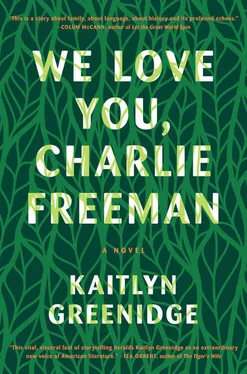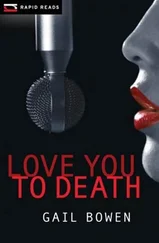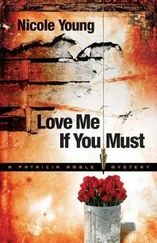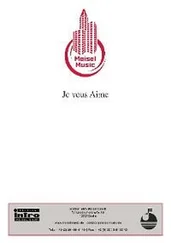He turned from the board to see that everyone had assumed their places. The girls in the front, his boy fan club a few rows behind them, their fellow students sprinkled in between. In the very back were the louts. This never changed. It didn’t matter if you were in Courtland County or Dorchester, Massachusetts, it didn’t matter if it was 1991 or 1971: the back of the class was for the lost and showily rebellious. It would be that way until the end of time.
“We’re gonna do something a bit different today,” he began. “Today we’re going to talk about beauty, truth, and light. I’m not talking about a laser show or whatever you kids are into—”
The class chuckled. This was a trick of teaching patter: establish an inside joke and make callbacks to it. In his first few days at Courtland County he’d asked, “Y’all do what around here? Fish in ponds? Make mud pies?” and one of them gulped, “We go to the laser show at the CCC’s astronomy lab.” And he’d laughed. The kids thought he was mocking the innocence of it, calling it lame, so they laughed heartily, too. But he’d been generally delighted by the answer, by its decency. Now he joked about it whenever possible, it always got them on his side.
“Tessellations are the most beautiful patterns you’ll ever see, they have the most truth you’ll ever encounter” he began, “and you can find their perfect representation in nature.”
As he spoke, he made his way around to the front of his desk and, with a purposeful squat, hopped on the top, swinging his legs back and forth. He could fall apart and cry and call it a cleaving to Laurel, he could feel his throat ache with tears even now, as he lectured, but he couldn’t show it. Of course he couldn’t show it, he knew, though a part of him wondered why, would forever wonder why. A part of him was always twelve years old. This was the one thing about Charlie that had fascinated him: did chimpanzees, like humans, contain a multitude of selves? When he’d raised the question with Laurel, playfully, one night early on in the experiment, as they lay before sleep, she’d gotten indignant. “Of course they do,” she’d sputtered. But the way she’d said it, it was obvious she hadn’t thought of it before, was only defending this answer because she loved Charlie and she couldn’t bear to think of him as different from herself. That was, perhaps, the source of their cleaving in a nutshell. Laurel could not conceive of anyone that she loved as not being of the same mind as her. That is what she’d said when he’d raged at her about it all: Ginny and Lyle and the breast-feeding and the humiliation. “I never asked because I thought you would agree, Charles. I thought we were of the same mind.” Himself, he knew he could love those of a different mind, but even he had his limits.
Anyway, all the evidence, from Charlie’s dull glare, demanding grasp, and general obnoxiousness pointed to “no” for his original question. Chimps, or at least Charlie, appeared to contain not multitudes but only one self, stretched thin with need and longing. But maybe Charlie was an exception or maybe developmentally he was stuck at being a toddler or maybe the answer was just that Charlie was an asshole, pure and simple.
“Can someone give me an example of a tessellation in nature?” Charles asked.
“A honeycomb,” Jen A. answered.
“A pineapple. I mean, like, the skin on a pineapple,” Jen C. added.
“Good,” he said. “Those are good examples.”
It started from the back of the class. He didn’t realize what it was at first. It honestly sounded like somebody retching and he was momentarily panicked: the one thing that dazed him in a classroom was when a kid was sick. He couldn’t even stand it when his own kids threw up: he would leave the room and leave it to Laurel. His palms began to sweat at the thought of having to deal with it, all while trying not to retch himself. But that wasn’t it. He glanced at the girls in his front row and saw that the Jens wouldn’t look at him, instead were slowly blushing. Megan and Kristen were the same. It was only outdated Doreen who could look him in the eyes, and when she did he realized, with a start, that she was crying.
The boys, his fans, looked murderous. Hakim was staring straight ahead in a mounting, unvoiced rage, his fists clenched and vibrating on his desktop. This was what made him listen closer to the sound. It was wordless and bass and hollow. At first he thought maybe it was supposed to be an owl call, and that was weird, why would one of the louts disrupt a lecture with an owl call?
Charles cocked his head and made a theatrical show of listening again. He thought this would stop it, would put the girls in front at ease, but it didn’t. The sound grew louder.
It was hooting, he realized. It was supposed to be hooting and then it struck him: it was a really bad imitation of a monkey. He sat back against his desk. He folded his arms across his chest, still trying to control the class, while inside he only wanted to cry.
The hooting grew louder.
It was baffling, how even rebellion came in only one shape: slouched shoulders, head low, insult the obvious. In Boston, it had been to call him a nerd, to make fun of his smarts, but this was so far from an insult it made Charles love those students more. Of course, here in Courtland County, they would go after Charlie.
He had waited, expectantly, for days after the article for something like this, but it hadn’t happened. He’d been perplexed by the girls who’d swarmed his desk for news about Charlie. He’d been most worried about Charlotte, but she seemed to take it in stride. It seemed, perversely, to gain her more friends. This saddened Charles, but it seemed to make Charlotte happy: he spied her sometimes, in the lunch room, caught up in a thick mass of girls, telling stories and giggling and nodding enthusiastically. Still he braced himself. He waited. And nothing had happened so he’d told himself he was being silly and let his guard down.
So it was here now. The hooting grew louder and louder and Charles leaned back against the desk, his heart racing, love on his tongue, feigning detachment. He told himself, I am not angry, I am not angry, I am not angry. He would put it aside. It was what he always did. One of the worst things to do was to lose your temper, was to let them see your anger. It was true of children. He didn’t like to make sweeping generalizations, but he had learned it was true of white people, too. Anger had to be carefully deployed. Children and white people, they expected you to become angry, they thrilled at it, a little bit. They pretended to be afraid, but it was a game some of them liked to play with black men. His students back in Boston had done the same: he had never wanted to give them the satisfaction of getting angry.
He took in deep, slow breaths. He tried to think of what would be the best next move.
Someone screeched “eee-iiii-oooo” and this gave him something to work with. He turned and smiled brightly and said, concise and clear, “Let’s get one thing straight. A bunch of little boys are not capable of embarrassing me. I’m still the one who decides whether you pass or fail. No amount of noise changes that.”
There was more rustling. One of the kids in the back leaned forward: a long, skinny tibia of a freshman named Martin Wade. He’d never had a problem with Martin before. In fact, Martin had always struck him less as defiant and more as terminally bashful. But now Martin leaned forward, one oversized Adam’s apple bobbing with self-loathing and fear, and he shouted loudly, “Ooga booga, ooga booga,” to the laughs of his friends.
And Charles turned around and called back without thinking, “You know, you’re awfully lucky you boys are white.”
Читать дальше










![Ally Carter - [Gallagher Girls 01] I'd Tell You I Love You But Then I'd Have to Kill You](/books/262179/ally-carter-gallagher-girls-01-i-d-tell-you-i-lo-thumb.webp)

